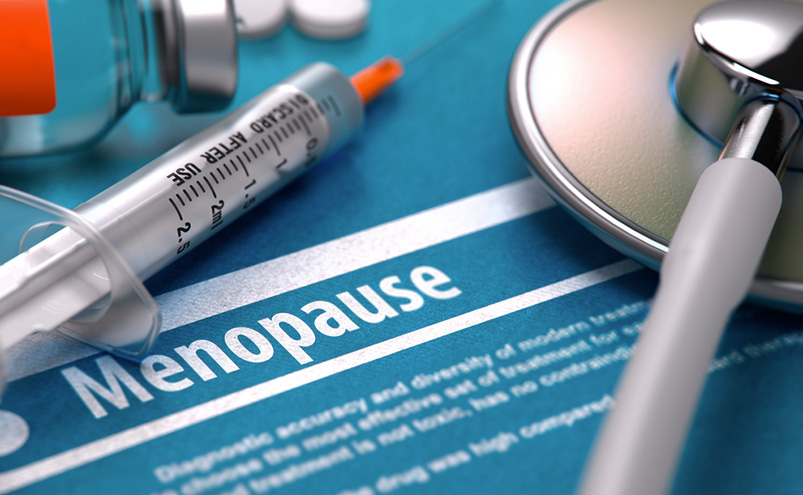Menopause is when a woman hasn't had her menstrual period in 12 months. This natural process occurs when the ovarian hormones estrogen and progesterone decline to the point that her monthly menstrual cycle comes to a stop. Although every woman experiences menopause in a unique way, the most common unpleasant symptoms are hot flashes, night sweats, mood swings, irritability, depression, urinary urgency or frequency, and loss of libido.
Calcium in bones drops while blood pressure and cholesterol rise, leaving a woman with a higher chance of developing heart disease.
With menopause, each symptom may seem like a battle of its own. A few tweaks in diet and lifestyle can help make it easier to cope with all the changes that occur in body chemistry during menopause.
Battle #1: Weight Gain
A great way to battle weight gain during menopause is to boost intake of fiber-rich foods daily. An easy way to get your 25-35 grams of fiber daily is including fiber-rich whole grains, fruits (such as apples, berries), peas, beans, greens (such as turnip, mustard, collard greens and spinach), and nuts. These foods will also help improve your cholesterol profile and lower blood pressure.
Muscle mass naturally declines with age. Daily physical activity is essential to replace this lost muscle and to keep your metabolic rate going strong. Aim for about 2.5 hours of exercise per week that includes aerobic and strength training.
Battle #2: Mood Swings
Mood swings, anxiety, and mild depression can become more common and more difficult to control. Make sure to get your B vitamins from unprocessed foods such as fish, poultry, lean meat, lentils, and whole grains. Omega-3 is also crucial to prevent depression. Focus on boosting your intake of oily fish, flaxseeds, or regularly taking an omega-3 supplement, such as OmegaEnergy Omega Fish Oil.
A great mood-boosting herb that also helps reduce other symptoms of menopause (such as stress or reduced mental alertness) is Siberian ginseng. The Proprietary Energy Blend in our Greenergy Green Drink mix has a safe supply of siberian ginseng to help balance hormones naturally.
Battle #3: Hot Flashes
Hot flashes affect as many as 75% of menopausal women because of the decline in estrogen. When it comes to hot flashes, consider what foods need to be avoided. Caffeine, spicy foods, sugary foods, and alcohol can intensify hot flashes. Aim to incorporate more plant estrogens into the diet. Much like a weak form of estrogen, plant estrogens can help reduce the severity of hot flashes. They are found in foods such as chickpeas, lentils, or soybeans.
Chasteberry, a fruit known to act on the pituitary gland to help control hormonal levels, is also known to help with hot flashes. We've included chasteberry in supplemental form in our Women's Mega Multi for its ability to reduce both PMS symptoms and hot flashes.
One study published in the journal Gynecologic and obstetric investigation found that the antioxidant vitamin E taken as a supplement also helped reduce the severity of hot flashes.
Battle #4: Battling Bone Loss
A bone-building supplement that includes calcium, magnesium, and vitamin D is a great measure against osteoporosis. Strength training is also important to maintain bone strength. Make sure to increase your intake of calcium-rich foods and vitamin D to promote healthy bones.
Battle #5: Increased risk of heart disease
Menopause increases a woman's risk for cardiovascular disease because estrogen decline can impair metabolism and cardiovascular function. Body fat distribution, blood fat, and blood pressure all change. Vitamin E, an antioxidant vitamin, can help reduce this risk by preventing LDL (or bad) cholesterol from sticking to blood vessel walls.
REFERENCES
Gynecol Obstet Invest. 2007;64(4):204-7. Epub 2007 Jul 30.
Climacteric. 2007 Feb;10 Suppl 1:19-24.
Am J Med. 2005 Dec 19;118 Suppl 12B:98-10














